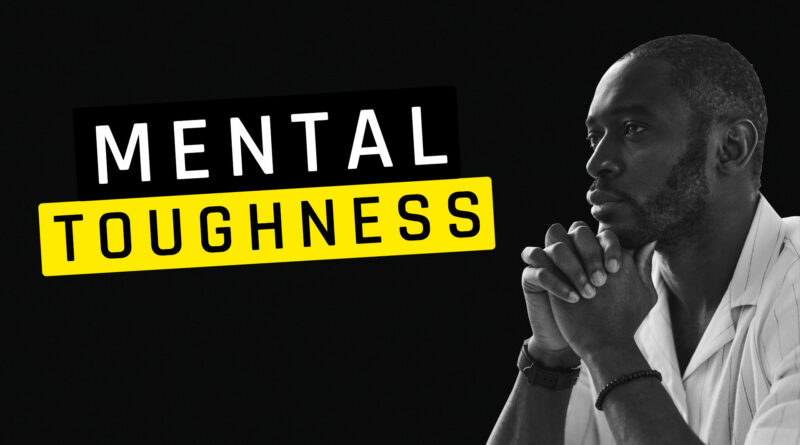12 Mental Toughness Habits You Must Start Using
12 Mental Toughness Habits You Must Start Using
Mental toughness is not something that you’re born with, it’s a skill that’s developed over time. In this video I’m going to talk about 12 habits you can start today that can help to improve your mental toughness!
1. Exercise regularly
Regular physical activity has been shown to have numerous mental health benefits. It can help to reduce stress and anxiety, improve your mood, and boost self-esteem. It’s important to find an activity that you enjoy, such as walking, running, cycling, or swimming, and aim to get at least 30 minutes of moderate-intensity exercise 4 – 6 days per week.
2. Eat well
A balanced diet that includes a variety of fruits, vegetables, whole grains, and lean proteins can support mental health and overall well-being. Avoiding processed and sugary foods can help to improve mood and reduce the risk of mental health issues such as depression and anxiety.
3. Get enough sleep
Lack of sleep can contribute to feelings of stress, anxiety, and depression so getting enough sleep is essential for good mental health. It’s recommended to aim for 7-9 hours of sleep per night.
4. Practice mindfulness
Mindfulness involves bringing your attention to the present moment, without judgment. It can help to reduce stress and improve overall well-being by increasing awareness of your thoughts and feelings, and allowing you to let go of negative thoughts and emotions.
5. Connect with others
We are social beings and strong social connections are important for mental health. It’s important to make an effort to maintain and strengthen social connections, even if it means reaching out virtually.
6. Engage in activities you enjoy
Doing activities that bring you joy and fulfillment can improve your overall sense of well-being. It’s important to make time for activities that you enjoy, whether it’s a hobby, creative pursuit, or simply spending time with loved ones.
7. Set boundaries
It’s important to set boundaries and take time for yourself to recharge and avoid burnout. This can mean setting limits on how much time you spend working or on social media, saying no to things that drain your energy, or simply taking breaks throughout the day to rest and relax.
8. Practice self-care
Taking care of your physical and emotional needs is essential for good mental health. We’ve already talked about how diet and exercise are forms of self care, but so are massage therapy, meditation and walks through nature.
9. Learn how to manage stress
Chronic stress can have negative impacts on mental health. It’s important to find healthy ways to cope with stress, such as through exercise, meditation, or talking to a therapist.
10. Seek support
It’s okay to ask for help when you need it. Consider talking to a mental health professional, such as a therapist or counselor, or joining a support group.
11. Practice gratitude
Focusing on the things you’re grateful for can improve your overall well-being and outlook on life. This can be as simple as taking a few minutes each day to write down a few things you’re grateful for, or sharing your gratitude with others.
12. Seek out new experiences
Trying new things can help improve mental health by challenging you to think differently and step outside your comfort zone. This can help to boost confidence, build resilience, and provide a sense of accomplishment.
I’d recommend checking out the book 177 Mental Toughness Secrets of the World Class and by Steve Siebold. It goes over different ways you can change your mindset, looking at how wealthy people think compared to everyone else.





